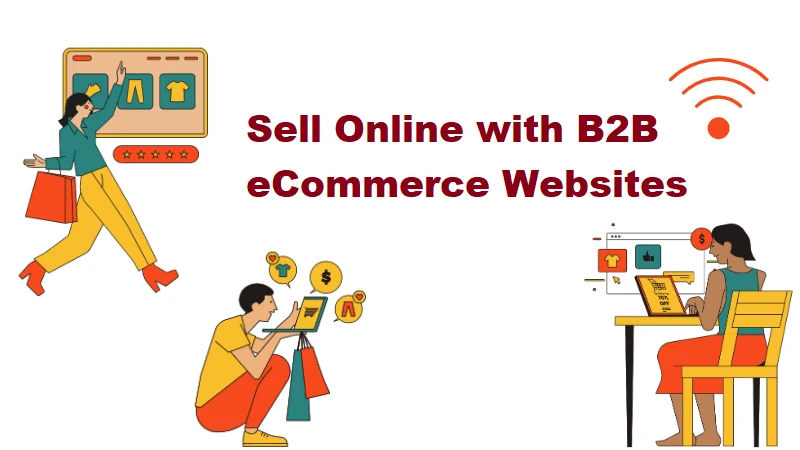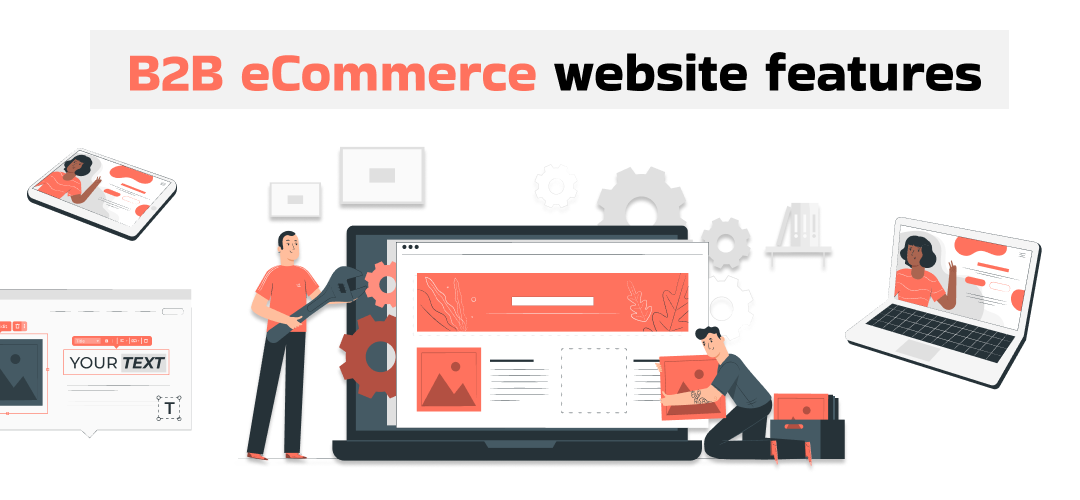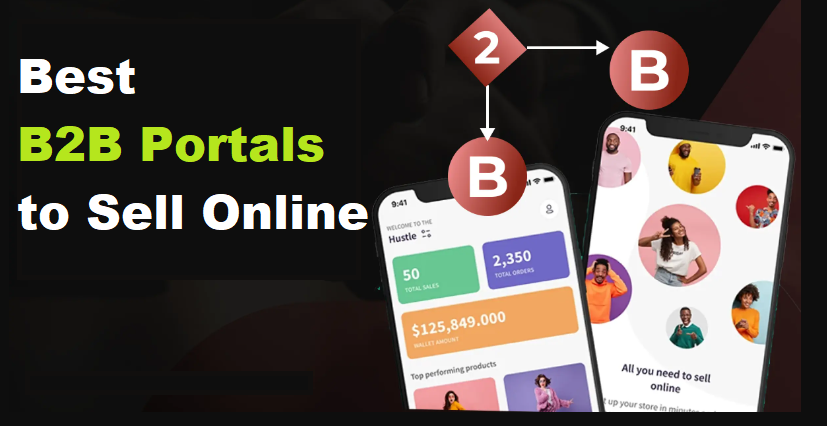Join World's Fastest Growing B2B Network

On the rapidly growing digital platform, B2B eCommerce websites have become a necessary channel for businesses to sell their products and services to other businesses. Unlike business-2-customer (B2C) websites, business-2-business (B2B) eCommerce sites are targeted at the requirements and complexities of business-to-business transactions. Such platforms aim to simplify the buying procedure, provide a better customer experience, and boost sellers' sales and profit.
Many benefits come with B2B e-commerce websites, including increased market reach, 24/7 availability, detailed product information, and personalized buying experiences. They enable businesses to automate sales and marketing procedures, cut costs, and give customers a seamless buying experience. With the global B2B eCommerce market still expanding, a strong online presence has become a crucial strategic asset for businesses aiming to remain competitive.
B2B robust e-commerce websites were the main reason for the digital transformation of the industry. They aim to meet the unique necessities and complexities of B2B transactions, differentiating them from their business-to-customer counterparts. Effective B2B eCommerce systems include the following essential characteristics:

Mergers and acquisitions and discussions at large scale are common in business-to-business transactions. A smart approach that efficient B2B eCommerce sites use to handle this issue is the customized pricing options for bulk purchases, which makes it possible for companies to obtain quotations and have customized pricing based on the transaction's amount or value.
Product recommendations are only one aspect of personalization in B2B eCommerce. Personalization means customizing the purchase experience (i.e., information, offer copy, products, and pricing) to the business account. This method individually considers each customer’s needs and preferences, which increases customer satisfaction and loyalty.
B2B items are complex; hence, buyers need thorough details to make informed decisions. A successful website will contain complete product details, technical details, availability, and compatibility details; they almost always feature downloadable manuals, tutorials, or videos.
The B2B buyers attach great importance to order management efficiency. Features such as order history, quick reorder choices, and shipping tracking should be incorporated. Time is conserved, and less labor is involved in maintaining the inventory levels where competition order management systems are used friendly.
In many organizations, many stakeholders are involved in the purchasing process when it is undertaken. Multi-level user permissions allowing several roles, for example, buyer, approver, and administrator, each one with different levels of access and capability, is one way a B2B platform supports this.
Longer payment terms and larger transactions are usual in business purchases. Credit lines, purchase orders, electronic payments, and flexible credit periods are important to serve a diverse set of business customers with diverse financial needs.
The data flows effortlessly from one platform to another as it is indebted to smooth interaction with other business systems such as PIM (Product Information Management), CRM (Customer Relationship Management), and ERP (Enterprise Resource Planning). The connection here helps keep data on price, inventory, and the customer correct.
With such an abundance of products and services provided on B2B marketplaces, sophisticated search and filtering functions become indispensable. Using these means, customers can find items conveniently according to parameters such as availability, brand, specifications, and price range.
Businesses keep adopting mobile devices, and hence B2B eCommerce platforms have to be mobile-ready. Customers can easily browse the items, use the platform, and complete purchases through any device using this.
Security is paramount since the business information exchanged in B2B transactions is sensitive. Efficient platforms implement strong security protocols, including SSL encryption, two-factor authentication, and compliance with data protection laws to secure user data.

Organizations that want to work through digital channels to provide goods or services to other companies need a solid B2B eCommerce strategy. Besides, an effective strategy helps to attract new customers and retain existing ones; it increases sales effectiveness and enriches customer experience. This is a thorough how-to manual for creating an effective B2B eCommerce strategy:
Initially, you must have a holistic understanding of your B2B eCommerce business audience. This means examining the needs, preferences, shopping behavior, and pain points of your target customers. Understanding your audience will assist you in personalizing your eCommerce platform, content, and marketing to fit their needs.
The eCommerce solution you choose will greatly affect your B2B strategy. Beyond meeting your current business needs, it should be scalable to facilitate future growth. The platform's ability to cater to discounted pricing, large orders, individualized experience, integration with current business systems, and mobile responsiveness are some of the important considerations.
In order to be successfully found and read, B2B search and mobile optimization should be given the highest priority. To have your site well-ranked in search engines, include significant keywords in your metadata, HTML structure, and page content. Ensure that the website's design is responsive to make it run properly on the many screens and various devices.
Content marketing is an effective technique in the B2B world. Offer top-quality, relevant content that addresses the needs of your market segment and appeals to their pains and problems. Blogs, whitepapers, case studies, product demos, and tutorials are included here.

The best online sales platform for B2B will depend on many factors, such as your industry, target market, type of product, budget limit, and unique requirements. These are a few well-known B2B websites that suppliers often utilize:
One of the leading international B2B marketplaces, it connects distributors and suppliers with customers worldwide. It offers different membership levels, each with specific benefits and features.
An accelerating global B2B online marketplace that integrates businesses globally enables them to connect with suppliers and buyers across the globe and engages them in cross-border commerce. Featuring a vast array of product categories, as well as the main services, including messaging, trade assurance, corporate profiles, and product listing, it's an ideal site for businesses looking to reach a global audience.
Amazon designed its B2B marketplace strictly for companies to purchase products in bulk. Features such as commercial pricing, quantity discounts, and integration with procurement systems are some of the things it comprises.
In the meantime, B2B eCommerce has many opportunities, like maintaining complex customer relationships, building a connection to current systems, and guaranteeing platform security, notwithstanding the considerable challenges. Resolving these issues demands a tactical strategy, which includes providing appropriate technology, focusing on customers` experience, and adhering to the best practices in data security and system integration.
Websites in business-to-business eCommerce are changing the way companies communicate and do business. Businesses can develop effective, user-friendly portals that meet business buyers' needs, boost revenue, and grow lasting relationships utilizing the right technology and methods. Digital marketplace success will require you to be a leader, keep ahead of trends, and optimize your platform as the B2B eCommerce landscape changes.
Serving millions of Buyers & Sellers around the world
Join Free